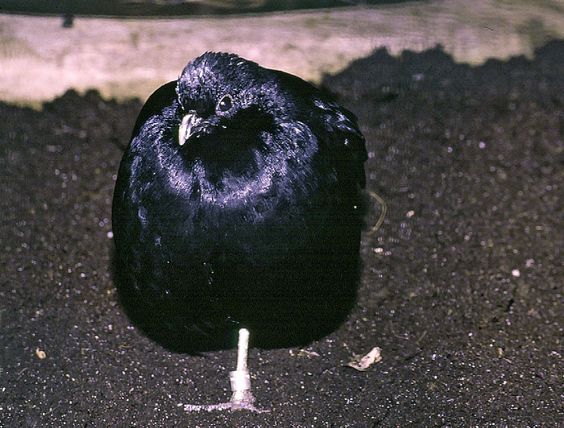How To Raise Ducks For Beginners
If you're considering raising ducks, you're embarking on a rewarding and enjoyable journey. Ducks make wonderful additions to a backyard or farmstead, offering not only a delightful presence but also a host of practical benefits. In this comprehensive guide for beginners, we will explore the essentials of raising ducks, covering topics such as selecting the right breed, providing proper housing and nutrition, ensuring their health and well-being, and more.
1. Choosing the Right Duck Breed:
Selecting the appropriate duck breed is an important first step in raising ducks. Consider factors such as the purpose (egg production, meat, ornamental), climate adaptability, temperament, and available space. Popular beginner-friendly duck breeds include the Pekin, Khaki Campbell, and Indian Runner, each with its unique characteristics and suitability for different purposes.
2. Setting Up Adequate Housing:
Providing a safe and comfortable housing environment is crucial for the well-being of your ducks. Ducks require a shelter that offers protection from predators, extreme weather conditions, and sufficient space for them to move around comfortably. The housing should include a secure indoor area for roosting and nesting, as well as an attached outdoor space for exercise and access to water.
3. Proper Nutrition and Feeding:
A balanced and nutritious diet is vital for the health and productivity of ducks. Ducks are omnivorous and require a diet consisting of a mix of commercial poultry feed, fresh vegetables, fruits, and access to clean water for drinking and swimming. It's important to provide appropriate feed formulations according to the ducks' age and purpose (egg-laying or meat production).
4. Water Requirements:
Ducks have a natural affinity for water, and access to clean water is essential for their well-being. Ducks use water for drinking, bathing, and maintaining their feathers' health. Ensure that ducks have access to a shallow, easily accessible water source or a well-maintained pond. Regularly clean and replenish the water to prevent contamination and ensure their hygiene.
5. Health Care and Disease Prevention:
Maintaining good health in your ducks is crucial. Establish a routine health care regimen, including regular veterinary check-ups, vaccinations, and parasite control. Ducks should be provided with appropriate shelter and bedding to prevent respiratory issues. Additionally, maintaining clean living conditions and practicing good biosecurity measures will help minimize the risk of disease transmission.
6. Social Interaction and Enrichment:
Ducks are social creatures that thrive on companionship. It is recommended to keep ducks in pairs or small groups to prevent loneliness and promote their overall well-being. Interacting with your ducks regularly, providing environmental enrichment such as toys and foraging opportunities, and allowing them free-ranging time in a safe environment contribute to their mental stimulation and happiness.
7. Egg Management and Hatching:
If you have ducks primarily for egg production, understanding the basics of egg management and incubation is important. Collect eggs promptly, store them properly, and consider whether you want to incubate them for hatching or use them for culinary purposes. Incubation requires careful temperature and humidity control, so research and prepare accordingly if you choose to hatch ducklings.
8. Handling and Training:
Developing a bond with your ducks through gentle handling and positive reinforcement can enhance their trust and make them more manageable. Start handling ducks from a young age, using calm and patient techniques. Training ducks to respond to commands or return to their housing can also be beneficial for their safety and your convenience.
- Considerations for Pest and Predator Control:
Ducks, like any other livestock, are susceptible to pests and predators. Implementing preventive measures such as secure fencing, predator-proof housing, and regular inspections for signs of infestation will help protect your ducks. It's also advisable to research natural pest control methods and predator deterrents that are safe for both ducks and the environment.
10. Enjoying the Rewards:
Raising ducks can be a fulfilling experience, providing you with fresh eggs, pest control, entertainment, and a unique connection with nature. Take the time to observe and appreciate the unique behaviors and personalities of your ducks. Share the joy with friends and family, and consider joining local poultry or duck enthusiast groups to connect with other like-minded individuals.
11. Seasonal Considerations:
Ducks have specific needs and considerations during different seasons. In colder climates, it is essential to provide adequate protection and warmth for your ducks during the winter months. This may include insulated housing, heating elements, and extra bedding. During hot summers, provide shaded areas and access to cool water to prevent heat stress. Adjusting their diet and monitoring their water intake during extreme weather conditions is also important.
12. Breeding and Reproduction:
If you are interested in breeding ducks, understanding their reproductive process is crucial. Ducks typically reach sexual maturity at around six to seven months of age. The breeding season for most duck breeds occurs in the spring, and during this time, the male ducks display courtship behaviors. Provide appropriate nesting areas with soft bedding material and monitor the breeding process closely. It's important to research specific breed requirements and understand the care needed for ducklings once they hatch.
13. Waste Management and Environmental Impact:
Ducks produce manure, and managing their waste is an essential aspect of raising them responsibly. Regularly clean their housing and promptly remove waste to maintain cleanliness and prevent odors. Duck manure can be composted and used as fertilizer for gardens or crops, provided it is properly aged and composted. Implementing environmentally friendly practices, such as using natural bedding materials and minimizing chemical usage, helps reduce the environmental impact of raising ducks.
14. Legal Considerations:
Before embarking on duck raising, it is important to research and comply with local laws and regulations regarding poultry ownership. Some areas may have restrictions on the number of ducks you can keep or specific zoning requirements. Familiarize yourself with any permits or licenses needed and ensure that your duck-raising activities are in accordance with local guidelines.
15. Continuous Learning and Adaptation:
Raising ducks is a continuous learning process, and it is important to stay informed about new developments, research, and best practices. Join online forums, attend workshops, or connect with local poultry associations to expand your knowledge and learn from experienced duck keepers. As you gain more experience, be open to adapting your practices to ensure the well-being and happiness of your ducks.
Raising ducks for beginners can be a rewarding and enjoyable experience. By considering factors such as breed selection, proper housing, nutrition, health care, and social interaction, you can create a nurturing environment for your ducks. Be mindful of seasonal considerations, breeding and reproduction needs, waste management, and legal requirements. With dedication, continuous learning, and a love for these fascinating creatures, you can embark on a successful and fulfilling journey of raising ducks.






